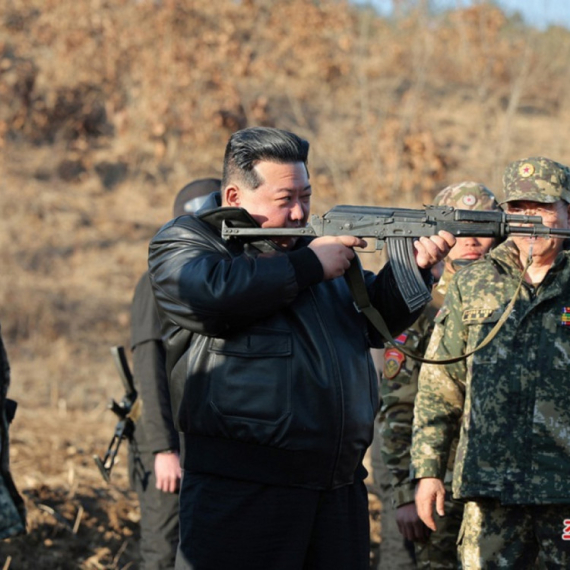"Economic situation satisfactory," believes c. bank chief
The economic situation in Serbia is satisfactory and soon the citizens will feel improvement, says National Bank of Serbia (NBS) Governor Jorgovanka Tabaković.
Monday, 08.07.2013.
12:49

BELGRADE The economic situation in Serbia is satisfactory and soon the citizens will feel improvement, says National Bank of Serbia (NBS) Governor Jorgovanka Tabakovic. "We are seeing a rise in economic activity and foreign trade and as a result, for the first time since the crisis started, we had a surplus in the current account of the balance of payments in May thanks to increased export," Tabakovic said for the Monday edition of the tabloid Kurir. "Economic situation satisfactory," believes c. bank chief "We have managed to maintain the stability of the financial system and inflation has been in a steady decline," said the NBS governor. According to Tabakovic, over the past month the dinar behaved similarly to most currencies in the region, weakening less than the Turkish lira or Romanian leu, but slightly more than the Polish zloty and the Hungarian forint. "Trends in international financial markets and the analysis of the Federal Reserve have made investors more cautious, which has had a negative effect on investments in government bonds issued by countries in central and eastern Europe, and consequently resulted in a weakening of their currencies," Tabakovic said. "In this regard Serbia is not an exception, although in our case increased caution from investors is also a result of the International Monetary Fund's unfavorable opinion of the state of Serbian finances," she said. (Beta, file) Tanjug Kurir
"Economic situation satisfactory," believes c. bank chief
"We have managed to maintain the stability of the financial system and inflation has been in a steady decline," said the NBS governor.According to Tabaković, over the past month the dinar behaved similarly to most currencies in the region, weakening less than the Turkish lira or Romanian leu, but slightly more than the Polish zloty and the Hungarian forint.
"Trends in international financial markets and the analysis of the Federal Reserve have made investors more cautious, which has had a negative effect on investments in government bonds issued by countries in central and eastern Europe, and consequently resulted in a weakening of their currencies," Tabaković said.
"In this regard Serbia is not an exception, although in our case increased caution from investors is also a result of the International Monetary Fund's unfavorable opinion of the state of Serbian finances," she said.


























































Komentari 1
Pogledaj komentare